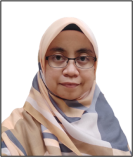[SEMINAR REPORT] At the occasion of the release of ASEAN Space Programs: History and Way Forward (Springer, 2022), the Science, Technology and Innovation Governance (STIG) program held a webinar on space policy in ASEAN countries on 8 February 2022.
First, Dr Rogel Mari Sese, member of the Board of Trustees and the Chair of the Department of Aerospace Engineering of the Ateneo de Davao University, delivered a keynote on his experience as head of the National SPACE Development Program, which crafted the Philippine Space Development and Utilization Policy and proposal for the creation of the Philippine Space Agency, which eventually became the Philippine Space Act, the country’s first space law. More than merely describing the process, he provided a long and valuable list of best practices that can be used by any country willing to start domestic space activities.
Following this great introduction to space development in developing countries, Dr Sese was joined by three leading experts, Dr Norilmi Amilia Ismail (Universiti Sains Malaysia), Mr David Ho Lit Xian (Singapore Space and Technology Limited), and Mr Maximilien Berthet (The University of Tokyo) to discuss various topics of importance, such as areas and frameworks for ASEAN-level space cooperation, the evolution of the space industry in ASEAN countries, the impact of geopolitical rivalries (India-China-Japan) on regional space development, and the role of academia in acquiring, generating and retaining knowledge in ASEAN countries.
Visit our STIG You Tube channel
[OVERVIEW]
At the occasion of the release of ASEAN Space Programs: History and Way Forward (Springer, 2022), the Science, Technology and Innovation Governance (STIG) program is holding a webinar on space policy in ASEAN member countries with prominent local experts. This webinar is the first of a series of monthly space policy webinars held by the STIG program.
Date & Time:
Tuesday 8 February 2022, 17:00 – 19:00 JST
Venue:
Online by Zoom Webinar (The Access URL will be sent to registrants’ email addresses prior to the event.)
Language:
English (no Japanese interpretation available)
Organizer:
Science, Technology and Innovation Governance (STIG) Program, The University of Tokyo.
Registration:
Please apply from this REGISTRATION FORM.
*If you cannot open the registration form, please email us at STIG@pp.u-tokyo.ac.jp, including your name and institution.
PROGRAM:
General moderator: Dr Quentin Verspieren, The University of Tokyo
[17:00-17:15] Opening remarks: Dr Quentin Verspieren, The University of Tokyo
[17:15-17:45] Opening keynote – Space policymaking in the Philippines: Dr Rogel Mari Sese, Ateneo de Davao University
[17:45-18:50] Panel – Space policy in ASEAN
• Dr Rogel Mari Sese, Ateneo de Davao University
• Dr Norilmi Amilia Ismail, Universiti Sains Malaysia
• Mr David Ho Lit Xian, Singapore Space and Technology Limited
• Mr Maximilien Berthet, The University of Tokyo
[18:50-19:00] Closing remarks: Dr Quentin Verspieren, The University of Tokyo
Speakers’ bios and headshots:
 |
Dr Rogel Mari Sese, Ateneo de Davao University, Davao, Philippines Dr Rogel Mari Sese is a member of the Board of Trustees and the Chair of the Department of Aerospace Engineering of the Ateneo de Davao University. He is also the Program Leader of the Ateneo de Davao Community Connectivity Empowered by Satellite Services for Mindanao or ACCESS Mindanao, a research and advocacy program of the ADDU that aims to provide internet connectivity to remote and isolated areas in Mindanao using satellite technology. Dr Sese led the National SPACE Development Program which crafted the Philippine Space Development and Utilization Policy and proposal for the creation of the Philippine Space Agency, which eventually became Republic Act 11363 or the Philippine Space Act, the country’s first space law. He has worked also with the private sector and served as a consultant of the Philippine Navy, Philippine Air Force and Department of National Defense for several years. |
 |
Dr Norilmi Amilia Ismail, Universiti Sains Malaysia, Penang, Malaysia Norilmi Amilia Ismail is a dedicated academic in the School of Aerospace Engineering, Universiti Sains Malaysia (USM) and a founder for SpaceIn, the spinoff company of University Sains Malaysia. She was graduated in Aerospace Engineering from Universiti Sains Malaysia in 2004. She was awarded MSc in Space Mission Design and Analysis in 2007 and PhD in Mechanical Engineering in 2011 from University of Glasgow. She started her teaching in USM in early 2011 and drove her passion for teaching to gain the interest of the undergraduate students and publics to Space. She is actively involved in the outreach program organised by the university and the local community in space education in Malaysia. She was one of the Emerging Space Leader Grant recipients by IAF in 2014, and in the same year, she started involved with SGAC. She was the First President of the Malaysia Space Initiative (MiSI), an NGO for space enthusiasts in Malaysia. Her journey as an entrepreneur started in 2020 where she founded SpaceIn, a company that produce picosatellite for IoT application. Her interest on the space policy started when she leads MiSI and continues when SpaceIn started and seeking the right ecosystem for the company’s growth. Her goal is to help her country to return to the space race and give opportunities and the way to the young generation to be involved in the space industry. |
 |
Mr David Ho Lit Xian, Singapore Space and Technology Limited David Ho Lit Xian served in the Executive Committee of the Singapore Space and Technology Association (SSTA) from 2018, and continues to be engaged and affiliated with the Singapore Space and Technology Limited (SSTL), which has been restructured from SSTA in 2020. David is called to the Singapore Bar and is a practicing lawyer at an international law firm in Singapore. David graduated from University College London (UCL) with a Bachelor of Laws. David is an active contributor to journals and space policy related books and papers. |
 |
Mr Maximilien Berthet, The University of Tokyo Maximilien Berthet is a Ph.D. student in aeronautics and astronautics at The University of Tokyo (UTokyo), Japan. He also serves as the coordinator of a space capacity building project between UTokyo and the Institute of Technology of Cambodia, and as the leader of Toward Diversity, a student group to raise awareness of gender equality at UTokyo. |
 |
Dr Quentin Verspieren, The University of Tokyo Quentin Verspieren is Assistant Professor at the Science, Technology, and Innovation Governance (STIG) program of the University of Tokyo’s Graduate School of Public Policy and Associate Research Fellow at the European Space Policy Institute (ESPI). His research primarily focusses on space policymaking and technology development in developing countries and on international regime-making for space security, safety and sustainability. Dr Verspieren has two master’s degrees in aerospace engineering (ISAE-SUPAERO and The University of Tokyo) and a Ph.D. in public policy (The University of Tokyo). |
———————————
Contact:
Science, Technology, and Innovation Governance(STIG) Program
Graduate School of Public Policy, The University of Tokyo
STIG@pp.u-tokyo.ac.jp